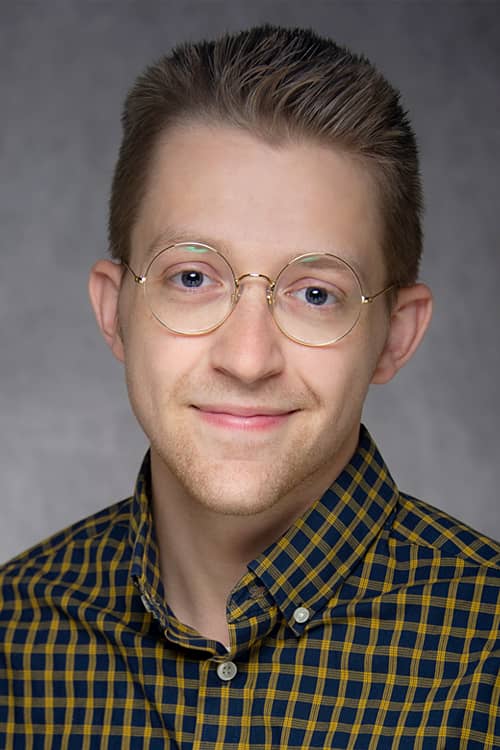
Dana Bohan, Ph.D. student, Immunology
Reveals how viruses enter cells
“Dana’s work on both Ebola and SARS-CoV-2 has identified and examined new pathways by which these viruses may enter cells and cause disease. His recent work… has obvious implications for potential treatments in our current pandemic.” – Kevin Legge, Professor of Pathology
• Hometown: Grimes, Iowa
• Faculty mentor/advisor: Dr. Wendy J. Maury, Mark Stinski Chair of Virology, Department of Microbiology and Immunology
• What is your degree program and expected graduate date? Immunology Graduate Program. I expect to receive my PhD in Summer 2022.
• Please describe your research: Our lab studies how viruses enter human cells, and the cellular receptors they exploit to make this process happen efficiently. We have found that a specific class of host receptors that bind virus membranes greatly increase entry for several viruses, most recently SARS-CoV-2. We also study Ebola virus, with a particular focus on how it is acquired and transmitted by humans, a major knowledge gap we believe to rely on infection of skin cells called keratinocytes.
• In simple terms, why does this research matter? Every virus has a unique method for entering cells, which are typically quite specific. The pathways we have discovered involving phosphatidylserine are near-universal for any virus that has a membrane, meaning that effective therapies to block these receptors have the potential to reduce disease in the context of many unrelated viruses, known and unknown. With the accelerating rate of viral emergence worldwide, preparing broad-spectrum therapies that target large swathes of potential pathogens is essential for getting a head start on reducing the toll of the next pandemic.
• How soon after starting at the University of Iowa were you able to participate in research? After completing the orientation day and starting my first rotation I was set loose in the lab immediately.
• How has being involved in research made you more successful at the University of Iowa? Becoming a scientist is not something that can be taught in a classroom. It requires time spent pursuing hypotheses independently, determining how best to answer specific questions, and how to interpret new information. Without a great deal of time spent doing research, I wouldn’t be an effective scientist.
• What are your career goals and/or plans after graduation? I plan to explore career options in industry, primarily in the area of vaccinology and antiviral therapeutics. Now, more than anytime in the recent past, the critical nature of research in these fields is apparent.
• Does your research have connections to or implications for COVID-19? My recent work has studied how SARS-CoV-2 enters human cells. We discovered a novel route of entry that uses host proteins known as phosphatidylserine receptors, and in our most recently published paper describe potential methods for blockading this pathway. This same mechanism was used by Ebola, the earlier SARS-CoV, and multiple other emergent viruses.
Banner location: Downtown—Washington Street
